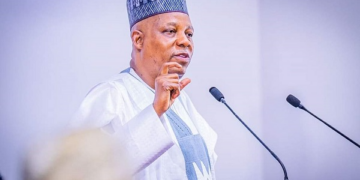The federal government has launched a nationwide call to students, parents, educators, policymakers, and civil society to unite in ending bullying in schools.
Minister of State for Education, Prof. Suwaiba Said Ahmad, made the call at the national stakeholders’ summit on Bullying Prevention and Support in Abuja yesterday.
Other ministers who joined the call included Dr Yusuf Sununu, minister of state for humanitarian affairs, and Ayodele Olawande, minister of youth development.
The summit was organised under the theme: “Unite Against Bullying: A Multi-stakeholder Approach to Legislative and Social Change.”
In her remarks, Prof. Ahmad emphasised that bullying is not just a school discipline issue but a serious threat to national development.
Bullying in any form is a threat to the dignity, safety, and well-being of our learners. It disrupts education, undermines confidence, and hinders the development of responsible citizens. We cannot afford to be passive. This is a moral duty,” she said.
She added that the federal government had already taken concrete steps by launching a National Anti-Bullying Policy, which outlines a prevention and enforcement framework to tackle bullying in all its forms, whether physical, psychological, or online.
Dr. Yusuf Sununu emphasised the critical role of collective action, particularly commending the mobilisation of parents and community members to the summit.
He linked bullying to broader social dysfunctions, including poverty and trauma, which often manifest as aggression and stigmatisation in schools.
“Bullying is a form of repeated aggressive behaviour often involving an imbalance of power. It can take many forms, physical, verbal, social, or digital, and each form leaves scars, often invisible but deeply damaging,” he said.
Sununu warned that verbal and cyberbullying are on the rise, leading to long-term consequences such as depression, anxiety, suicidal ideation, and social withdrawal among victims.
“Mental health is now a national concern, and we must treat bullying as one of its root causes,” he stressed.
Also speaking, the senior special assistant to the president on student engagement, Hon. Sunday Asefon, described bullying as a “national challenge” that can no longer be ignored or explained away as part of school culture.
“Enough is enough. No child should suffer in silence. No parent should fear sending their child to school. No school should ignore cries for help disguised as ‘discipline,“ he declared.
Asefon added that the summit was not convened merely to discuss the problem but to drive actionable change.
“This is about policy, protection, and prevention. We’re here to influence national direction, propose laws, and inspire a cultural shift where empathy and inclusion are the foundation of learning,” he stated.











